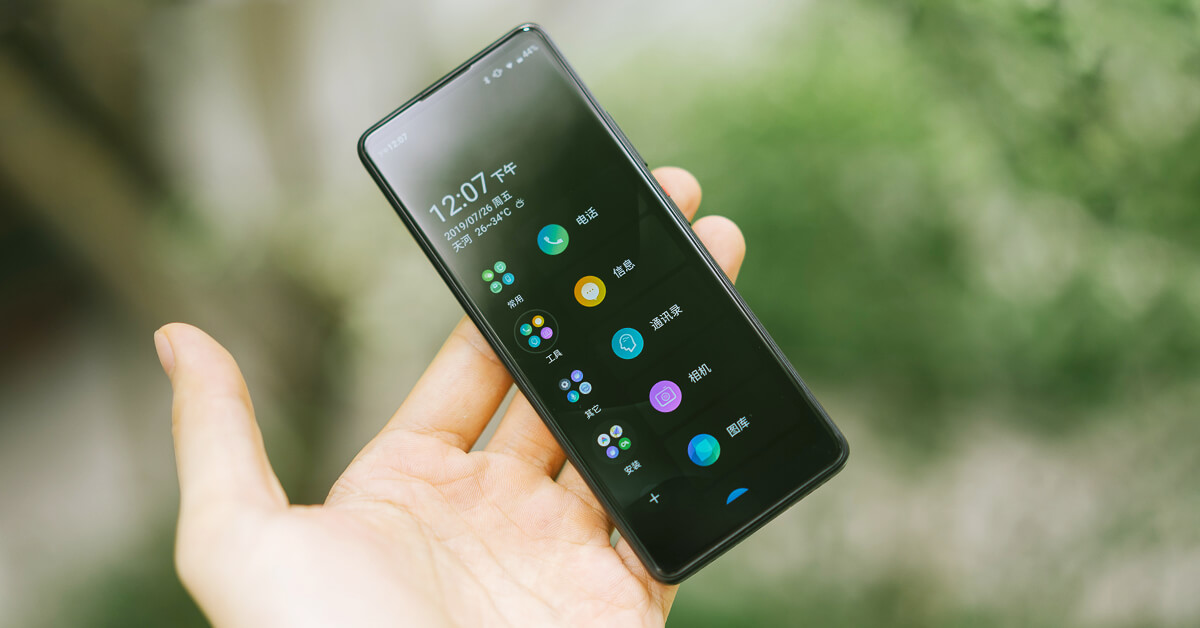DIGITAL LIFE
6 reasons why you shouldn’t buy an compact smartphone
For years, compact smartphones were synonymous with convenience and ease of use. They fit comfortably in one hand, slid effortlessly into pockets, and seemed like the ideal balance of portability and functionality.
Despite this appeal, demand for compact smartphone sales has steadily declined over the past years. So much so, that Apple decided to halt its iPhone mini-series phones due to low sales and lack of demand.
So why has the market turned its back on smaller phones? The answer is practicality. While compact devices might seem appealing in theory, they often fall short in real-world usability.
On the other hand, larger smartphones offer tangible benefits that compact devices simply can’t match. Let’s explore why big screens dominate the market.
1. Bigger Screens, More Content...Smartphones are no longer just for calls and occasional texts. They’ve evolved into pocket-sized computers that handle everything from browsing the web to streaming videos. A larger screen allows for more content at once—whether you’re scrolling through social media, watching videos, or editing photos.
For many, a smartphone is their primary (or even sole) device for consuming content. Without a laptop or desktop, a large screen is not a luxury—it’s a necessity.
When Steve Jobs introduced the iPhone 4S in 2011, he claimed 3.5 inches was the “perfect” size for a smartphone display. Fast forward a decade, and that size feels restrictive. Just try using a phone from 2012 to scroll through today’s media-rich websites—you’ll quickly understand why big screens became the norm.
2. Compact Phones Lack Space for Modern Features...Modern smartphones pack an incredible array of hardware into their slim bodies. To enable contactless payments, GPS navigation, wireless charging, and high-speed 5G connectivity, a phone needs space for components like NFC chips, accelerometers, antennas, and magnetic coils.
Smaller devices inevitably face design compromises. Shrinking components is possible to an extent, but physics imposes limits. A compact phone might force you to sacrifice features like fast charging or robust connectivity. And let’s not forget the battery—a larger phone can house a larger battery, essential for powering all those advanced features.
3. Larger Phones Handle Heat Better...Today’s smartphones rival laptops in performance. Equipped with powerful processors and up to 16GB of RAM, they generate significant heat, especially during multitasking or gaming.
Larger devices dissipate heat more efficiently because they have more room for cooling mechanisms, whether passive (like heat pipes) or active (like fans in some gaming phones). Compact phones are more prone to overheating and throttling, which can lead to slower performance and discomfort during prolonged use.
4. Typing Is Easier on Bigger Screens...A larger screen doesn’t just enhance visuals; it also improves usability. Virtual keyboards on big phones offer larger keys, reducing typos and making typing faster. They also allow for additional function keys, so you don’t need to switch layouts as often.
While one-handed typing can feel awkward on a larger phone, most modern keyboard apps offer one-handed modes that make this a non-issue.
5. Better for Gaming...Mobile gaming has become a significant industry, and for many users, their phone is their primary gaming device. Large screens provide a better gaming experience by showing detailed graphics and complex effects more clearly. They also offer more space for on-screen controls, so your fingers don’t obscure the action.
6. Compact Smartphones Are Expensive to Produce...Compact smartphones are niche products, and niche products rarely benefit from economies of scale. This is why Apple’s iPhone 12 Mini and 13 Mini, despite critical acclaim, accounted for just 3% of total iPhone sales.
Packing flagship hardware into a small body requires custom engineering, from miniaturized circuit boards to redesigned cooling solutions. These added costs make compact phones more expensive to develop, but their limited appeal doesn’t justify the investment. Even Google has pivoted away from the idea of small phones, focusing instead on larger, more profitable models.
In 2022, Pebble founder Eric Migicovsky launched a campaign urging companies to produce more compact smartphones. The campaign garnered about 41,000 signatures—an impressive number, but insignificant in a market with millions of customers.
So it’s clear that compact phones appeal to a small but vocal audience. However, for most consumers, the benefits of a larger device outweigh the drawbacks. Unless foldable technology becomes affordable enough to bridge the gap between compact size and large-screen usability, compact phones are unlikely to make a comeback.
mundophone


No comments:
Post a Comment